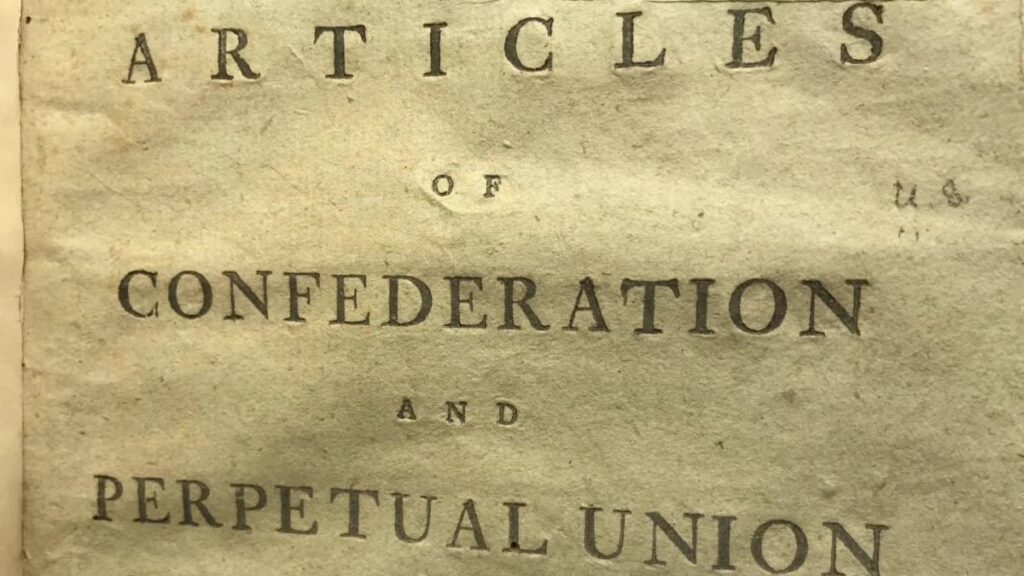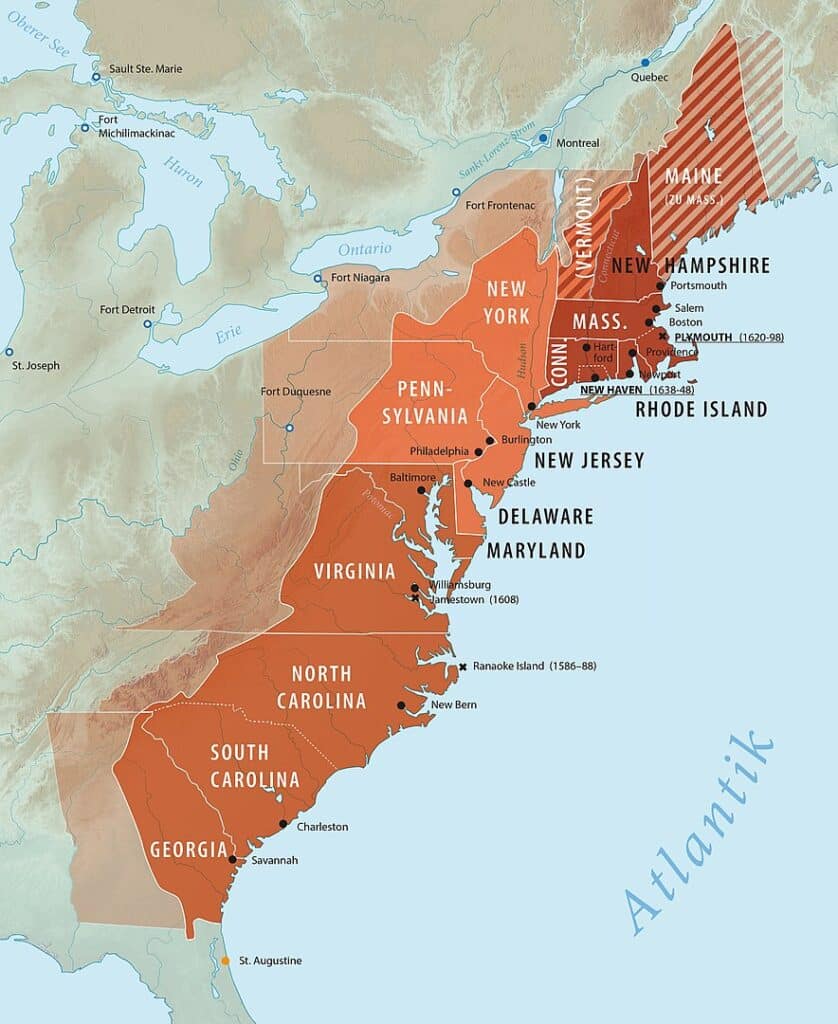Why was the Constitution Written

There is a story one hears occasionally about Benjamin Franklin strolling along a street in Philadelphia after the convention of 1787 when a lady, concerned about the future of our country, asks Franklin what kind of government the delegates to the convention had given to Americans. Franklin’s reply to the lady was, we are told, “A republic, if you can keep it.” This story is suspect for at least three reasons. First, the lady’s question is un-American because it reveals a dependent, rather than an independent spirit. The generation of patriots who fought the British Empire for their liberty were not going to accept quietly whatever kind of government a small cadre of leading men decided to impose on them.
The generation of patriots who fought the British Empire for their liberty were not going to accept quietly whatever kind of government a small cadre of leading men decided to impose on them.

It was not part of the mandate given to the delegates at Philadelphia to draft an entirely new constitution. Upon convening in Philadelphia in May of 1787, the delegates did two things that might have caused eyebrows to raise. They ordered the windows in the room to be closed, even though they were embarking upon a very hot summer season, and this was done so that people in the street outside could not hear what they were discussing. Then, they swore themselves to secrecy. One might wonder how in these circumstances people in Philadelphia could have formulated a question like the one purportedly put to Ben Franklin.
Finally, the United States under the Articles of Confederation were a federal republic and thus there was no need for a new constitution to establish a political order that already existed.
Why, then, a new constitution? The late Murray Rothbard wrote that if we want to understand the real motives for the behavior of people in power we need to simply “follow the money” and this has some validity as we attempt to answer this question. Early in our history under the present Constitution there was much hand-wringing about how to control the general (federal) government as it inevitably seeks to grow its power. Thomas Jefferson admonished his countrymen saying that in this matter we need not talk of constitutions, justice, or the principles of our founding; we need only restrict the supply of money to the government. Here we come close to the reason for a new constitution in 1788/89.
It is instructive to recall the memorable opening sentence of a novel titled The Go-Between: “The past is a foreign country, they do things differently there.” Yes, but while people in the past are doing things differently, they are doing those things as human beings with whom we share a common nature. It is a nature we share with Peruvians, Iranians, Koreans, Kenyans and humans the world over which is why, with a little effort, we can understand why people seemingly unlike us act as they do. Americans of the 18th century were not very different from us, and this is on display in the intrigue that led to the drafting of a new Constitution for the United States. The 20th century Protestant ethicist Reinhold Niebuhr once rather humorously observed that Original Sin is the one empirically verifiable doctrine of the Christian faith. In other words, we are flawed, and this condition appears to be permanent for humans as a whole since we repeat well-worn wrongs generation-to-generation. In 410 A.D. Rome was sacked by an army of Germanic Visigoths. The shock that gripped the Mediterranean world had people wondering if the ancient gods of Rome were punishing Romans for abandoning them for a Jewish carpenter. In response to this, St. Augustine, bishop of Hippo Regius in what today is the country of Algeria, wrote one of the most influential books in western history: The City of God. In this book Augustine advances, among other things, a philosophy of history that dominated western thought down to the modern period. Importantly, on the first page of this book, Augustine asserts that many of the evils human beings inflict on one another are caused by those who are afflicted with the lust to dominate others. This, I think, gives us the key to understanding the drive felt by many Americans to replace the Articles of Confederation and Perpetual Union.
The thirteen colonies that were formally recognized as free, sovereign, and independent states by the British crown in the Treaty of Paris, 1783, were agreed that they needed to maintain a political union in order to provide for a common defense, and to keep free trade open among the states. There is an interesting part of this history that casts light on our present question. Patrick Henry was invited to join the Virginia delegation to the Philadelphia Convention in 1787. He declined, famously saying : “I smell a rat.” Rhode Island sent no delegates to the convention. Despite the official purpose for the convention, many observers had a rather clear idea of what was going on. When the new constitution was written and sent to the states for deliberation and judgment, Rhode Island flatly rejected it. Some people might feel a certain pride at Rhode Island’s gritty stand for freedom, but, as with humans everywhere, their motives were not quite pure. Article I, section 10 of the Constitution enumerates the powers states agree to give up upon entering the new union. This section says in part that no state shall “make any Thing but gold and silver Coin a Tender in Payment of Debts;…” In other words, no paper money.
During our war for independence from Britain, states printed significant quantities of paper money, that is notes not backed by gold or silver, and this inflation of the money supply caused soaring prices that in turn created serious and painful economic panics (as depressions were called then). Perhaps the biggest offender in this regard was Rhode Island, and that state’s leaders were determined to keep printing. This was among Rhode Island’s prime objections to the Constitution.
Under the Articles of Confederation, the general government (so-called because it had only a few general responsibilities) had no original taxing power. The Articles created a “requisition system” beloved by federalists like Patrick Henry of Virginia and hated by nationalists like Alexander Hamilton and Gouverneur Morris, both of New York. The general government consisted simply of a unicameral Congress: no senate, no executive, no court. It could act on none of its delegated responsibilities without the prior approval of nine states. Importantly, in order to acquire funds to carry out its duties, the Congress had to send requisitions for payments to each state that were based on a formula prescribed in the Articles. However, compliance was up to each state, so if a state failed adequately to comply, which many did, Congress had no power of enforcement.
Arguments for a new constitution emerged almost as soon as the Articles went into force in 1781. Prominent among them was the assertion that the requisition system made it impossible for the legislature to raise the money needed adequately to fund the Continental Army during the War for Independence. This likely was true, but we should take note of the argument advanced by many historians that the war was won by the state militias, not the Continental Army. Perhaps the heaviest fighting of the War took place in South Carolina where the militia acquitted itself with courage and lethality. But there were other problems with the Articles in the minds of the nationalists. With no original taxing power, the general government could not impose protectionist tariffs on goods imported into the country. This was an unbearable restriction to the merchants and emerging manufacturers of the North, especially New England, who wanted high tariffs in order to protect their nascent industries from competition with European producers, and to provide them with seed money believed to be important to growing their economies.
Among the powers the nationalists most wanted was authority to charter corporations which would permit them to establish a national bank. With a bank of its own, however structured, the general government would be free to grow at its ease since it would have the ability to raise its own money, regulate the money supply, and regulate the expansion of credit (as the Federal Reserve System does today). In short, what the nationalists wanted, and the federalists adamantly did not want, was an American version of the British state established here under American control. The federalists reminded the nationalists that they had seceded from the British Empire in order to escape the abuses of a unitary national state with few enforceable limits on its power.
The federalists knew what the nationalists were up to, and any lingering doubt they might have had was dispelled when the nationalists began calling themselves “federalists,” which they were not, but the term was very popular among Americans, and took to calling the federalists “anti-federalists.” Why, then, would the federalists negotiate with and compromise with the nationalists? Union. The nationalists were growing increasingly angry and insistent in their demands to “reform” the Articles of Confederation, and the concern was that without some kind of compromise, the union would break up and the uncertainty to follow would be very dangerous to the security and the liberty of the states.
The Constitution that came out of Philadelphia was not what the nationalists wanted (Alexander Hamilton condemned the Constitution as “a frail and worthless fabric”), but it gave them enough to build on. The nationalists got a chief executive in whom power could be consolidated, they got a Supreme Court, they got the power to levy protectionist tariffs, and they got a path to establishing a national bank. And the rest is history.
Posted on May 3, 2023



